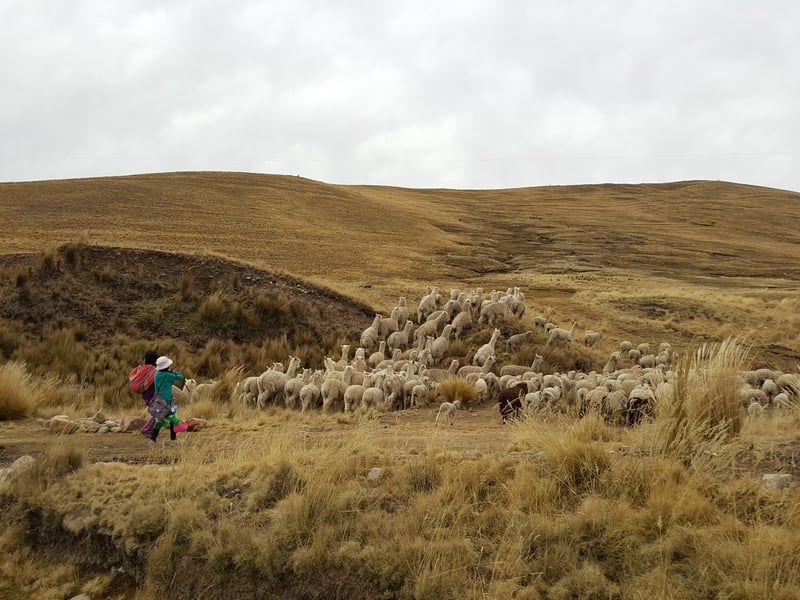
Peru cold spell - Supporting animals and communities
News
Following a severe cold spell, our disaster relief teams have been working to provide aid to local farmers and their livestock.
Our disaster response teams recently visited Peru, where the Peruvian government have declared a state of emergency in 16 of the country’s 24 regions due to a severe cold weather spell. Most of the affected areas are in the south of the country, where temperatures have dropped to as low as -24C. Poor rural populations living at more than 3,000m above sea level are the most affected.
After the heaviest snowfall to hit Peru in a decade, the devastating effects of this cold snap have been widespread. According to the Rural Development Office (DRA), more than 871,000 alpacas have been impacted. In this year alone, the South American Camelids Project (PECSA) have reported that 9,000 adult alpacas have already died and 161,000 of their offspring are weak and extremely vulnerable to the low temperatures.
Over 33,000 people have been affected, and the harsh weather has also killed tens of thousands of llamas, cattle and sheep. This has left farmers destitute, as they make up the majority of the livestock in Puno.
Hugely relied on for their wool and meat, alpacas represent over 70% of many families household income. The impact of the cold spell will be felt by many. Without alpacas as their livelihood, many local people will be forced into finding jobs away from their families.
Facing a lack of grazing systems, and no corrals or shelters, farmers and their herds resort to travelling to the highest peaks to find food for their animals. Already facing harsh weather conditions, this further drop in temperatures can cause massive losses and even death.
By providing food, we can help families in Puno. With your help, these communities can rebuild their livelihoods.
Help us to protect animals and livelihoods
Thanks to your support, we have been able to give aid to millions of affected animals in disaster zones.
Keep up to with our activities in Peru on Facebook and Twitter, and learn more about our disaster response work.
Over 33,000 people have been affected, and the harsh weather has also killed tens of thousands of llamas, cattle and sheep. This has left farmers destitute, as they make up the majority of the livestock in Puno.